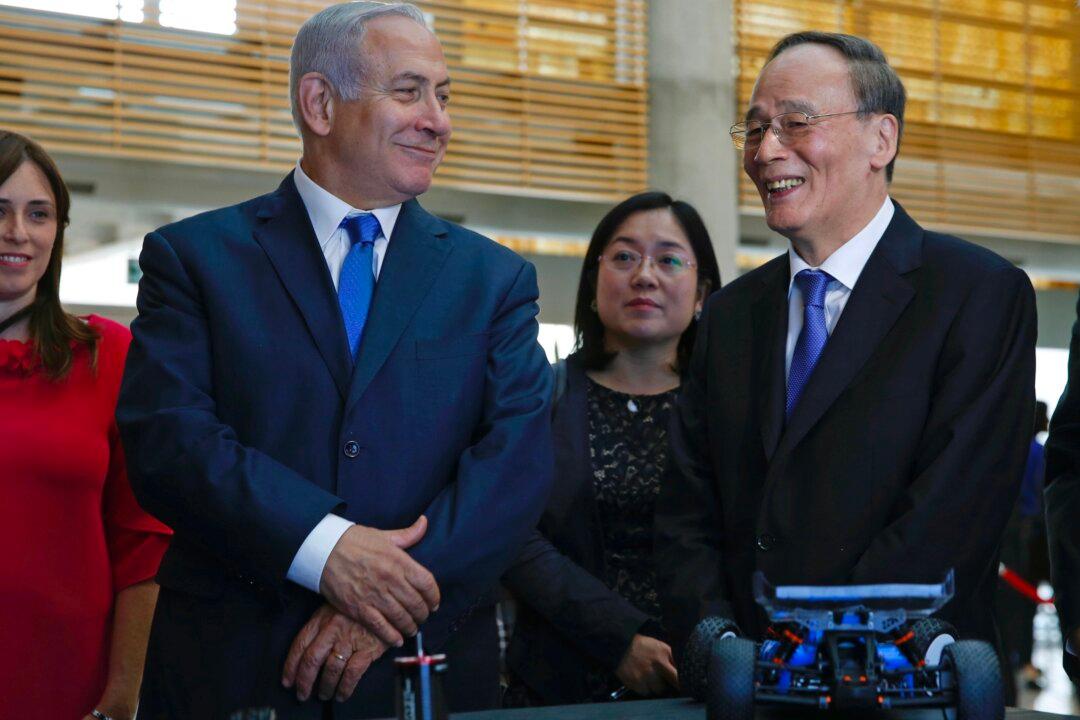Chinese Vice Chairman Wang Qishan recently concluded a four-day visit to Israel with the signing of several major cooperation agreements with the Jewish state as part of a plan to ramp up their relationship.
The two countries signed eight joint agreements in the fields of life sciences, innovation, digital health, and agriculture, according to an Oct. 24 announcement by Israeli Ministry of Foreign Affairs. The agreements are effective to 2021.





